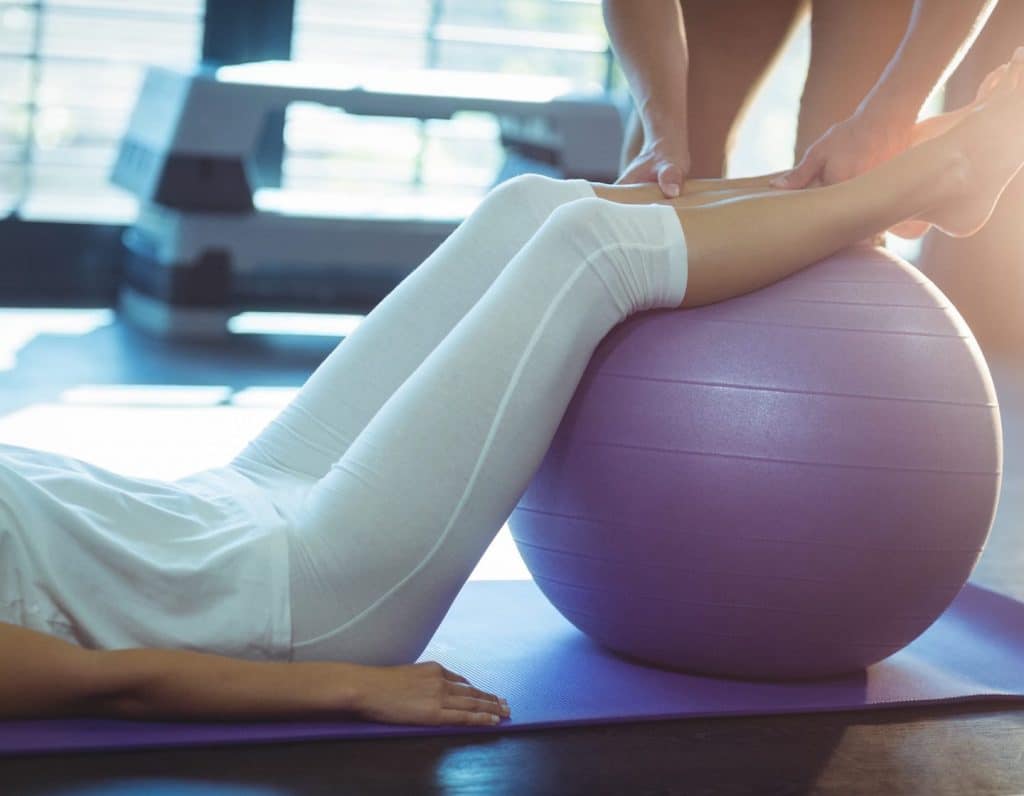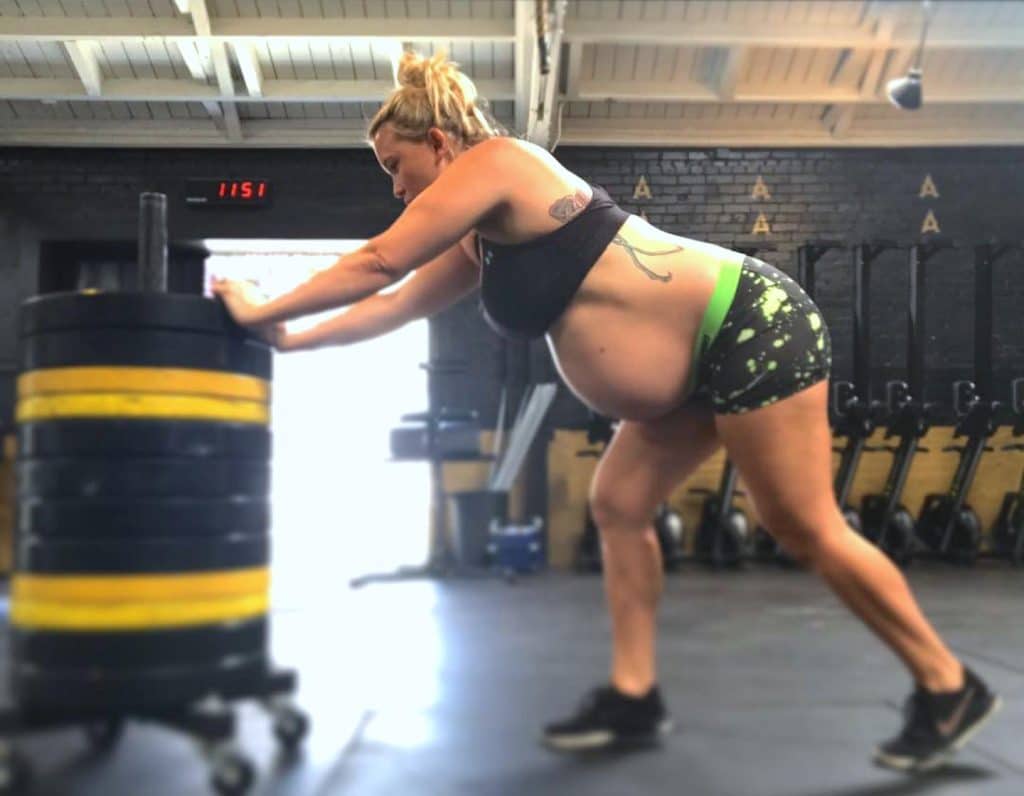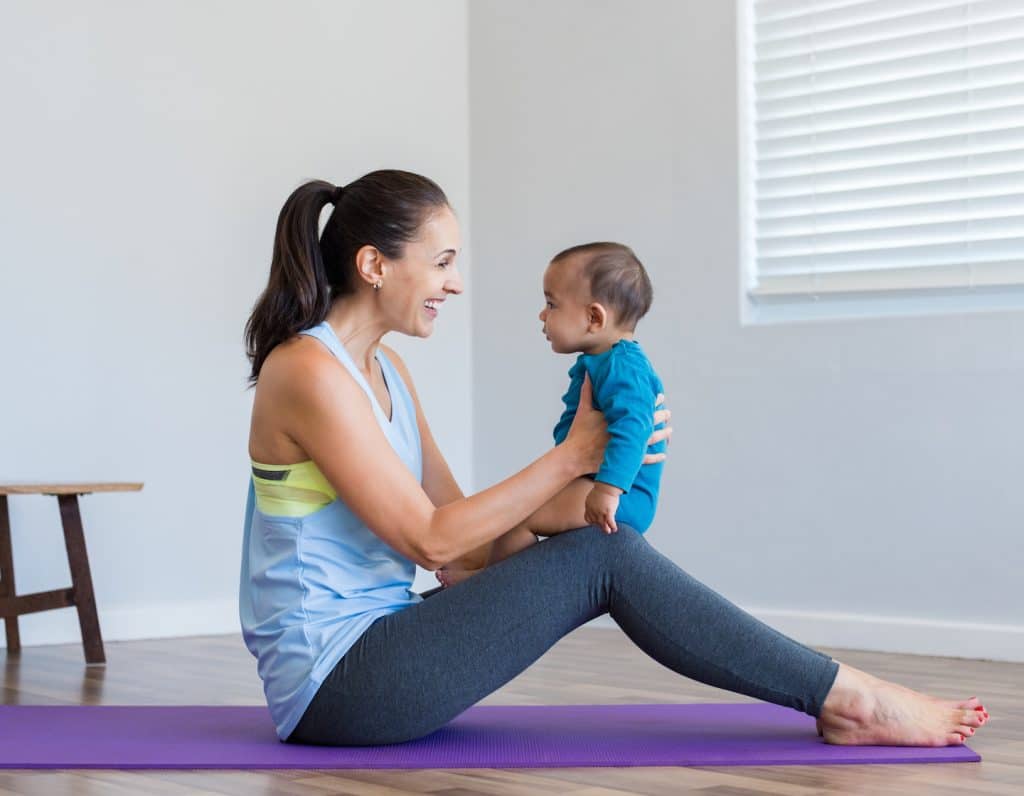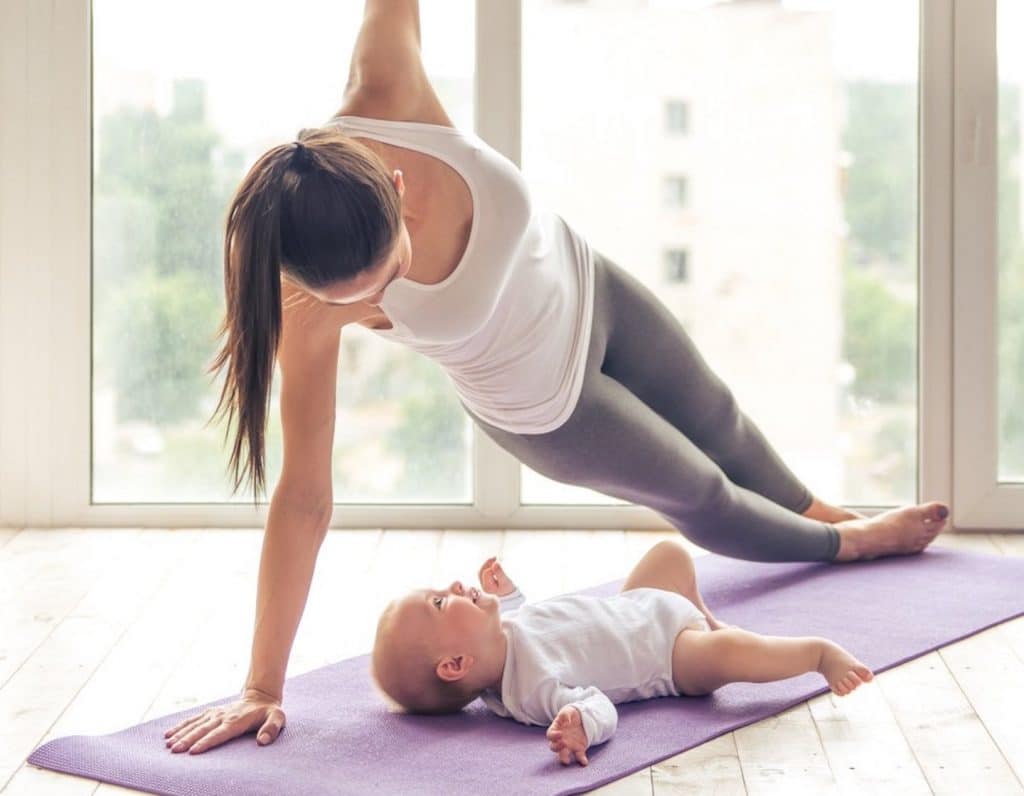




Experiencing some issues ‘down there’ after having a baby? Or noticed your tummy bulging? These pelvic floor experts in Singapore can help with incontinence, diastasis recti, prolapse, or any discomfort!
Almost every mama has a story about peeing themselves when they laugh, jump on trampolines or cough after having a baby. There are also many mamas who suffer from diastasis recti and painful pelvic prolapse following their first or second pregnancies. Postpartum movement can be a finicky thing, but we’ve delved into Singapore’s tight-knit network of pelvic floor experts and postpartum physiotherapists because strengthening your pelvic floor – beyond just doing Kegels – can help improve your body’s function and set the tone for it post-childbirth.
What are the pelvic floor muscles?
Let’s talk about the pelvic floor! The pelvic floor muscles span across the pelvis and help to hold the uterus (womb), bladder and bowel in place. The pelvic floor muscles tighten when you do something to raise your abdominal pressure like coughing or sneezing, to prevent any urine from leaking (they act like a control valve around the urethra). Pelvic floor muscles in women provide support for the baby during pregnancy. After giving birth (both vaginal or by Cesarean section) if the pelvic floor muscles are weakened they can create problems with bladder and bowel control. Pelvic floor muscles are also important for sexual function in women (and men!) as these muscles contribute to sexual sensation and arousal – so you really want to look after them!
Read more: Taking Care of Your Body Before, During & After Pregnancy
Pelvic floor experts in Singapore
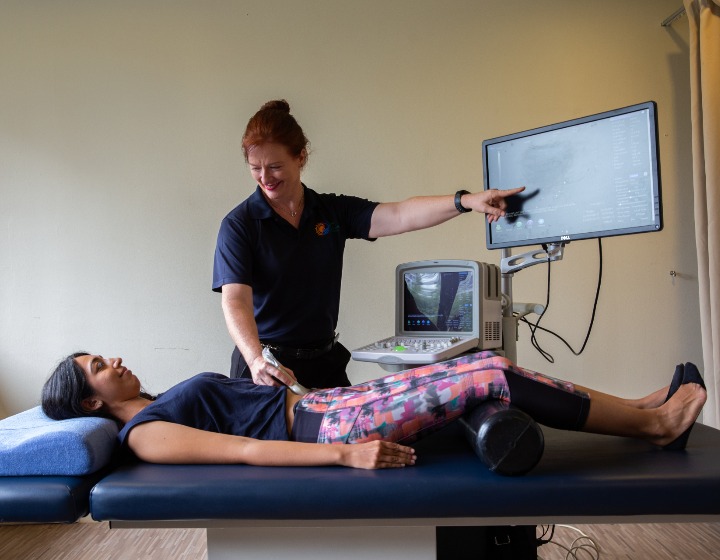
Physio Asia Therapy Centre
The pelvic floor expert:
Danielle Barratt has over 25 years of experience in providing holistic physiotherapy care for women of all ages. Qualifying as a physiotherapist in 1996 (Australia), Danielle has worked both in the public and private healthcare systems in Australia, Canada, UK and Singapore. She has a post-Graduate certificate in Clinical Physiotherapy (Continence and Women’s Health) and is working towards completing a Master’s degree in Women’s Health. She has worked with Physio Asia Therapy Centre since 2012 and was a guest speaker and presenter at the first Inaugural Plastic Surgery Conference held in Singapore in 2019 and Inguinal Hernia Repair Conference in Singapore in 2020. Danielle is passionate about empowering women to better understand their body’s through life’s stages. Her areas of expertise focus on pelvic floor muscle education and rehabilitation, diastasis rectus diagnosis and repair, developing core muscle strength, treatment of lower back and pelvic pain, blocked breast ducts and mastitis and more.
What to expect:
An initial women’s health physiotherapy appointment involves a 10 to 15-minute chat with the client to gather a detailed subjective history and to understand concerns and their goals for the session. Once we have discussed any past or impending surgeries or health concerns and medical history, then an objective assessment can be done on the same day or the next visit. For an objective assessment of pelvic floor muscles, I will use a model of the pelvis and Real Time Ultrasound Imagery (RTUS) to show the client their pelvic floor muscle function on the screen. Subject to the findings of RTUS and the client’s comfort level, an internal vaginal assessment may or may not be suggested. This will always be with the client’s consent.
Treatment sessions vary with every individual however they will always involve a great deal of education on the pelvic floor anatomy, function, and a discussion on the treatment plan for the client. In the internal examination, one to two fingers are inserted into the vagina – this should, in most cases, be pain-free – to assess pelvic floor function and strength. The aim is to assess the quality of the pelvic floor muscle contraction with regard to endurance (how many seconds the client can hold the contraction and repeat this before she tires and or the quality of the contraction changes), and the number of times she can do quick or phasic contractions (i.e.: her two-second fast action contractions) before these muscles fatigue. There is constant observation of other muscles being activated during the assessment and treatment such as the client’s breathing pattern or compensatory movements of breath-holding or breathing in, in an unnatural rhythmic pattern or if the client is contracting her buttock or inner thigh muscles and or engaging her waistband oblique muscles. These are commonly observed accessory patterns and are often seen when a client is unsure of how to correctly activate her pelvic floor muscles and or has a dysfunctional pelvic floor muscle pattern.
Often biofeedback and or electrical stimulation may be required to ‘kick start’ and re-educate the pelvic floor muscles and may be used in the treatment sessions and or education provided to the client on the use of these treatment modalities via compact portable home devices. Every woman presents differently and requires an individually tailored treatment approach. Sessions routinely are 45 minutes in duration and often a week or 2 apart depending on the requirements of the client. In acute pain situations, 1-3 sessions/week may be needed until the pain settles. Every client is treated as an individual, with their own progressive treatment plan.
Pelvic floor exercise tips to practice
“Firstly, breathe! I believe often a good rhythmical breathing pattern, is the key to successfully activating and maintaining a good pelvic floor muscle contraction. There should be no accessory muscles such as the gluteal (bottom), adductor (inner thigh) or Oblique (waist band) muscles activated, while doing a good pelvic floor muscle contraction. If they do fire up or activate, then stop and seek treatment and education on the correct pelvic floor muscle exercise. Lastly, make pelvic floor muscle exercises part of your daily life; you will reduce, if not prevent your risk of leakage, improve your sex life (increased sexual awareness) and further improve your core muscle strength.”
Physio Asia Therapy Centre, multiple locations, [email protected], Tel: (+65) 6736 4142, www.physioasia.sg
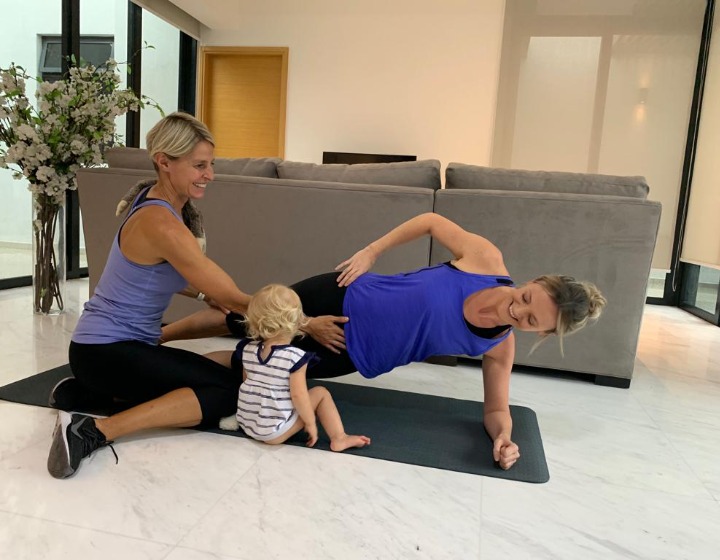
Health2Mama (Health2u)
The pelvic floor expert:
Rebecca Aldridge and Laura O’Byrne first established Health2u in Singapore to offer professional physiotherapy, massage and exercise services at home and at work, and has more than 16 years of physiotherapy experience. Rebecca qualified in 2002 and has spent years in teaching hospitals. Rebecca has also completed a Masters in Advanced Physiotherapy, and is trained in acupuncture, Pilates and exercise rehab, particularly in prenatal and postnatal exercises. Laura has worked in various clinical settings in the United Kingdom and in Singapore, and is one of Health2Mama’s experts in pre- and postnatal physiotherapy. She also specialises in the correction of diastasis recti and the restoration of bladder control through pelvic floor exercises. The duo set up Health2Mama, which now comprises a group of physios that specialise in providing pre- and postnatal pain relief, lactation relief (clearing blocked milk ducts), specialist exercise training and massage for mums. The pelvic floor specialists here are focused on core training, diastasis recti healing and improving pelvic floor function. The centre has its own virtual specialist exercise programmes, which you can follow by downloading the Health2Mama app. In addition to a central clinic in Telok Ayer, the pelvic floor experts from Health2Mama can also provide their services in the comfort of your own home anywhere in Singapore. Specialist exercise coaching during your pregnancy or after childbirth can be administered at your home, condo gym, nearby park or clinic.
What to expect:
Many women think Kegels are the only strengthening exercise you’ll need in life. But for women in Singapore, both Rebecca and Laura have found that the pelvic floor can, in fact, be overactive. Therefore, you’ll need to relax and release your pelvic floor rather than activating or strengthening it. The only way to determine whether you have an overactive or underactive pelvic floor is a proper pelvic floor assessment. The key thing to remember is that it is like any other muscle group, your pelvic floor strengthening program needs to be tailored to suit you.
The experts at Health2Mama always recommend a thorough assessment and examination so that we can prescribe the right exercises for that person. The pelvic floor experts at Health2Mama work within evidence-based practice, keeping up to date with research and applying it to each of its programmes. The exercise programmes here aim to improve muscle endurance and strength of the pelvic floor and its ability to work well with other surrounding muscle groups, particularly the glutes and deep abdominals. Following any exercise routine of the pelvic floor, they encourage pelvic floor relaxation techniques to prevent other issues that can occur if the pelvic floor is overactive.
Pelvic floor exercise tips to practice
“Strengthening is very individual. The techniques that work for one person may be impossible for another. Health2Mama’s pelvic floor experts recommend getting to know your pelvic floor by first understanding what a correct pelvic floor contraction is. Simply put, the best way to identify this contraction is to stop yourself from passing wind. Once you can do a proper pelvic floor contraction quickly 10 times in a row, work your way up to Health2Mama’s 60-second rule, which is part of the foundation level of its virtual Pelvic Floor Programme. In other words, do 60 contractions in 60 seconds, and aim to practise this three times a day,” advise Rebecca and Laura.
![]()
![]()
Health2Mama, 101 Telok Ayer Street, #03-01, Singapore 068574, [email protected], Tel: (+65) 6255 5250, (+65) 8358 2144 (Whatsapp), www.health2mama.sg
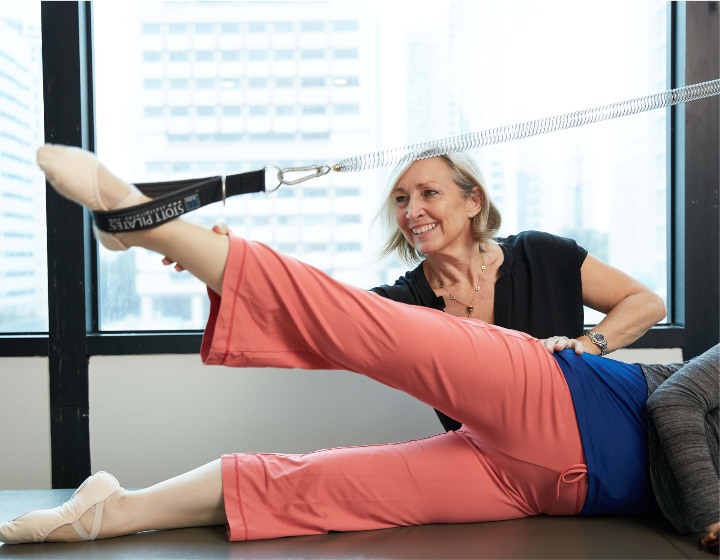

PhysioFocus
The pelvic floor experts:
Edwina Rigby trained in Australia and Canada and her specialities include ergonomics and women’s health. She is also trained in clinical Pilates and has completed a PhD in Physiotherapy. Her research is focused on diastasis recti and postpartum health. Edwina has a specialist interest in helping women with pelvic girdle pain during and after pregnancy and postpartum recovery. Rowena Chance has 35 years of experience in physiotherapy. Over this time, she has treated musculoskeletal aches and pains, sports injuries and athletes of all levels. After developing a bigger interest in specific women’s health issues several years ago and undertaking a study, she has found this to be the missing link in finding the root cause of many women’s problems, specifically with more longstanding issues of spinal pain, postural issues and more. She really enjoys getting ladies back to activity and treating the whole person.
What to expect
With a practice conveniently located right on Orchard Road, PhysioFocus takes a tailored approach for the individual and her presenting concerns. Women’s health is a vast area; it doesn’t just cover pre- and post-pregnancy issues, but also includes a myriad of gynaecological issues affecting women of all ages – child-related or not – to which physiotherapy can be immensely beneficial.
Appropriate assessment is the key to getting the right treatment. There are lots of internal systems within the body that must be taken into consideration, as there is more to it than just your gynaecological area; we must also consider your bladder, bowels, hips, pelvis, spine, posture, muscular control and general posture and body biomechanics. All of these, in addition to your stress and general activity levels, matter when treating any physical issues you may have.
The pelvic floor experts at PhysioFocus aim to look at everything that could be relevant to your complaints, and guide you towards the right exercise regimens or provide advice on returning to exercise after childbirth. Many problems can result from doing too much, too soon, or returning to your previous levels of activity after prolonged rest. It’s important to remember that it’s not only about your pelvic floor!
Pelvic floor exercise tips to practice
“A patient-centred physiotherapy assessment will provide you with the best results. This will help determine the approach your body needs. Real-time ultrasounds can be a non-invasive tool to offer the feedback required to help with pelvic floor strengthening. Find something that motivates you, because it’s always helpful to start again no matter your age or stage. Lastly, don’t think about exercising in isolation. We want to incorporate pelvic floor training as part of your overall programme to help you return to activity and for successful rehabilitation,” advise Edwina and Rowena.
PhysioFocus, 583 Orchard Road, #07-01, Forum Office Tower, Singapore 238884, Tel: (+65) 6734 8151 or (+65) 9168 5539 (WhatsApp), www.physiofocus.com.sg
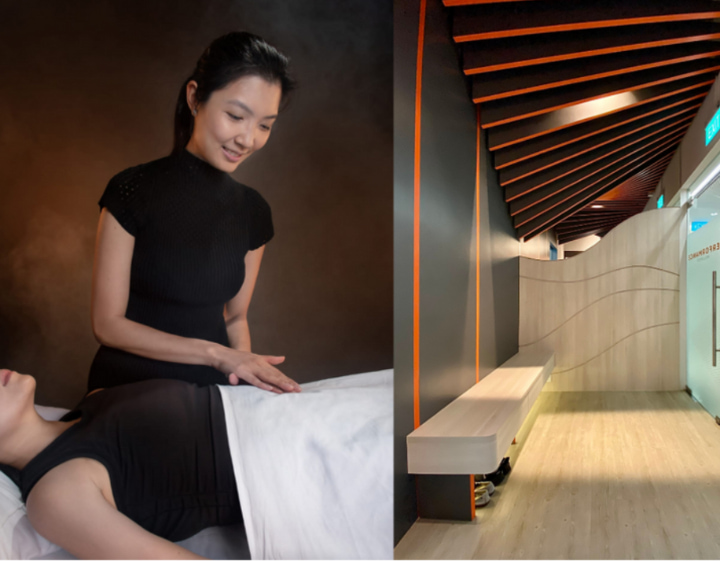
Performance Wellness
The pelvic floor expert
A Doctor of Physical Therapy graduate from Columbia University, Esther Lim is an award-winning pelvic floor expert who has worked at the world-renowned Memorial Sloan Kettering Cancer Center in oncology rehabilitation and at KK Women’s and Children’s Hospital (KKH), where she began specialising in women and children’s pelvic health. Using her own experiences with severe pelvic pain and incontinence during pregnancy and post-partum, Esther uses a family-oriented approach to empower women into understanding and taking back control of their bodies. She also strives to provide evidence-based holistic care for all patients.
What to expect
A pelvic health physiotherapy assessment at Performance Wellness may include both an internal and external assessment – an option your physiotherapist will discuss with you as you’ll be given the opportunity to give or revoke consent at each session. This way, your physiotherapist can work with you on alternative assessment and treatment methods. The team at Performance Wellness believes that pelvic health isn’t just focused on the pelvic floor – instead, it’s focused on the whole body. And while many experts only focus on the pelvic floor, they make it a point to examine whether your ankle, knee, hip and spine could be contributing to your symptoms. Just as how an injured shoulder responds well to stretching, tender point release and hands-on manual therapy during rehabilitation. Pelvic floor muscles can benefit from the same approach. The pelvic floor is like a trampoline, it needs to be strong and flexible. Pelvic floor muscles that are overworked or hypertonic hold a lot of tension and performing more Kegels (pelvic floor exercises) can make it worse. Prior to strengthening, a pelvic health physiotherapist prescribes specific exercises to help overactive pelvic floor muscles lengthen and let go. These exercises include passive and dynamic hip exercises, internal stretching and good breath work.
Strength comes easy when you have the right technique.
Pelvic floor exercise tips to practice
“Play around with different positions to enhance or facilitate pelvic floor muscle contraction. Kegels feel different in various positions. For example, lying on your back with knees to chest allows gravity to assist a pelvic floor muscle contraction. This position can be helpful for individuals who’re having a hard time activating their pelvic floor muscles. There are lots of things that are misunderstood about the pelvic floor. But I think what people don’t realize is that the pelvic floor is really essential and perhaps one of the drivers of low back or even hip pain. People understand that they should do Kegels for incontinence but what they don’t know is that poor performance of the pelvic floor can also contribute to other musculoskeletal issues. Since the pelvic floor is mostly out of sight and sometimes out of mind, it’s then easy to make mistakes since you can’t see if you’re doing the right thing. If you’re unsure about your technique, it’s always best for you to see a pelvic health physiotherapist for an assessment,” says Esther.
Performance Wellness, Tel: (+65) 6734 3421/ (+65) 6518 3660, www.performanz.com.sg/wellness
Other Pelvic Floor Experts to Consider
PhysioActive
The pelvic floor experts at PhysioActive have been providing specialised care for expectant and post-partum mamas, as well orthopaedic, neurologic, and sports rehabilitation, for over a decade. They have five convenient locations all over the island and offer services including massage, dry needling, electrotherapy, and rehabilitation exercises.
PhysioActive, multiple locations, www.physioactive.sg
Physio Down Under
Originally from Brazil, Monica Donaldson has 15 years of physiotherapy experience and began her career in the United Kingdom. She can assess and treat a wide variety of pregnancy and post-natal conditions, and can also assist with breastfeeding problems like mastitis and blocked ducts. South African Tamara Gerdis also worked in the UK and Australia prior to moving to Singapore. A mother of two, Tamara holds a graduate certificate in Continence and Women’s Health Physiotherapy, and she’s also written some great articles for Sassy Mama.
Physio Down Under, 318 Tanglin Road, #01-30 Phoenix Park, Singapore 247979, www.physiodownunder.sg
The Moving Body Group
With nearly two decades of experience under her belt, Aparna Shah has a particular interest in issues relating to the spine, sacroiliac joints (i.e. the pelvis), knees, and shoulders. She holds a masters in health sciences and works out of The Moving Body’s Bukit Timah and East Coast locations.
The Moving Body, multiple locations, www.themovingbodygroup.com
UFIT
Kelly McGinnity specialises in women’s health, can help resolve challenges with diastasis recti and has had experience working with mothers in a maternity ward. With everything from boot camp classes to physiotherapy and nutritionists, UFIT offers a completely holistic approach to wellness for both prenatal and post-natal mamas.
UFIT, multiple locations, www.ufit.com.sg
Urban Rehab
The pelvic floor experts at Urban Rehab work with women both during and after pregnancy. They treat ailments like lower back and hip pain, diastasis recti, and incontinence. Treatments include myofascial release (deep tissue massage), manual lymphatic drainage, and core strengthening exercises.
Urban Rehab, multiple locations, www.urbanrehabphysio.com






 View All
View All





 View All
View All







 View All
View All


